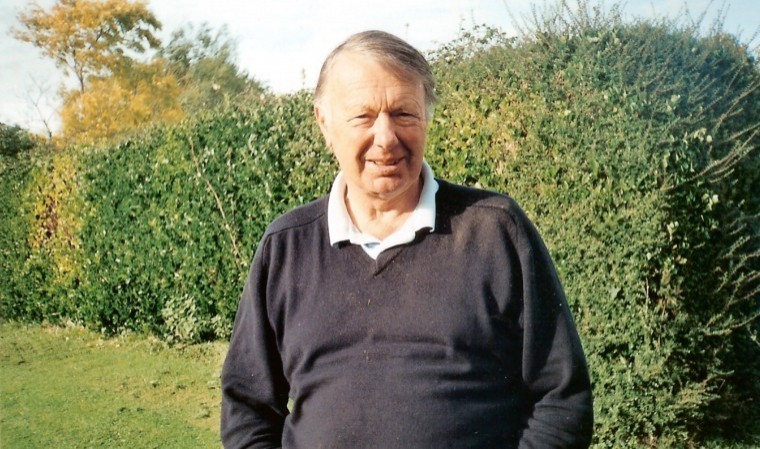I hoped we would never see a repeat of the two severe droughts of 1975/6. The only difference this year has been that we did come out of last winter with good reserves of silage stocks. But, that said, we needed to break into these to feed the herd and young stock through these past arid months until the rain finally arrived.
One aspect of drought, which I always find quite surprising, is the reaction of the animals to sparse, dried up pastures. Yes, they do need supplementary fodder, yet so long as they have plenty of water they tend to spend most of their time lying down quietly (semi comatose even?) sheltering where they can, and conserving their energy. They seem to accept conditions in a similar manner, I imagine, to their cousins in equatorial lands.
We had not a drop of rain from 30 May until it finally broke on 27 July and even then initially only about a tenth of an inch, but it raised the spirits. This coupled with the fact our contractor had finished cutting the malting barley a couple of hours before, all in the barn at 13% moisture, made it a good day. Not that the yield was worth writing home about, although it was better than it looked pre harvest.
Just at a time of year when grass, cereals and maize need regular moisture, the effect of the shortage was very evident across the country. It looks like around 30 acres of our best maize might yield around 10 to 12 tonnes an acre, down to nothing worth cutting on a further 25 acres – so pretty much a disaster. I think our salvation will be in taking a late crop of grass silage in the autumn. Doubtless it’s going to be a difficult winter for many. News that the government announced it was prepared to relax water extraction rules came six weeks too late for many, because the water was needed in early July when farmers knew we had a problem – long before the government realised it.
On a different scale I am very thankful of the decision I made a few years back to invest in a borehole. With the demand for water in the recent hot weather – along with the cost of it via the mains – to have access to 20 cubic metres of clean cool water a day, free of charge, is a real boon. Looking at the trends in weather, along with the general upswing in demand, having one’s own supply surely has to be a top priority for dairy farmers. Obviously, were we able to get extraction licences, so exceeding the 20 cubic metre limit, it would be even more useful and could save the sort of crop losses one has seen this past summer. But licences are not easy to come by these days.
Readers may have gathered over time, from these columns, that my disdain for Deathra remains undiminished. This is an unwieldly and incompetent department of government, almost constantly headed by ministers whose lack of understanding of agriculture has guaranteed them a job.
Just recently I was sent a cutting from a reader, taken from the Telegraph in February 2006, headed: “They should ask the fellows who cut the hay.”
I won’t bore you at length but quote the last paragraph word for word because it is pretty much as true now, 12 years later, as then.
“DEFRA is a failure and should be scrapped. There is a spare seat in the Cabinet, unfilled pending a reshuffle: it should go to a new ‘secretary of state for agriculture and rural affairs,’ whose brief will be to protect our countryside and its stewards, our farmers. Not least against the ignorance of his colleagues.”
Nothing changes. I suppose the truth is no prime minister presumably wants a minister of state to know their subject better than themselves! Mr Gove is not up to the job although clearly he thinks otherwise: the only man suitable remains Owen Paterson. But I imagine from his previous treatment by David Cameron he will want to keep well away.
He surely would bang heads together in the shambles that allows/encourages TB to continue to run rampant, get ready to rearrange the many rules Europe has imposed, sort out fishing and bring some sense and confidence back to our industry. One can only dream.
As I write this we have just completed our third TB test this year, with the result we were all dreading, throwing up two reactors and two inconclusives. It has set us hard back on our heels. Like all dairymen we well know these results are hugely unreliable and if these reactors prove, like the earlier two, to be negative it will still leave us on the treadmill of months more movement restrictions and the ever present problem of what to do with our new born calves.
With the present incomprehensible and imbecilic movement rules, allowing beef animals from high risk areas to the west to bring in TB to infect local cattle herds, there is absolutely nothing we, or any of the many other affected stock farmers, can do to protect our animals. Some support from the NFU would be very welcome but the union still seem set on protecting the beef fatteners’ livelihood and trade. It would be nice to see the union’s powers that be thinking about the many in British dairy farming whose trade is suffering just because of their own stance.
Just now we need to take stock of the whole situation so need to talk it all through. Suffice to say I don’t think I want to go through many more of these Deathra supported charades. I am simply not prepared to kill healthy calves on the basis of their lousy, unreliable, TB testing regime.




